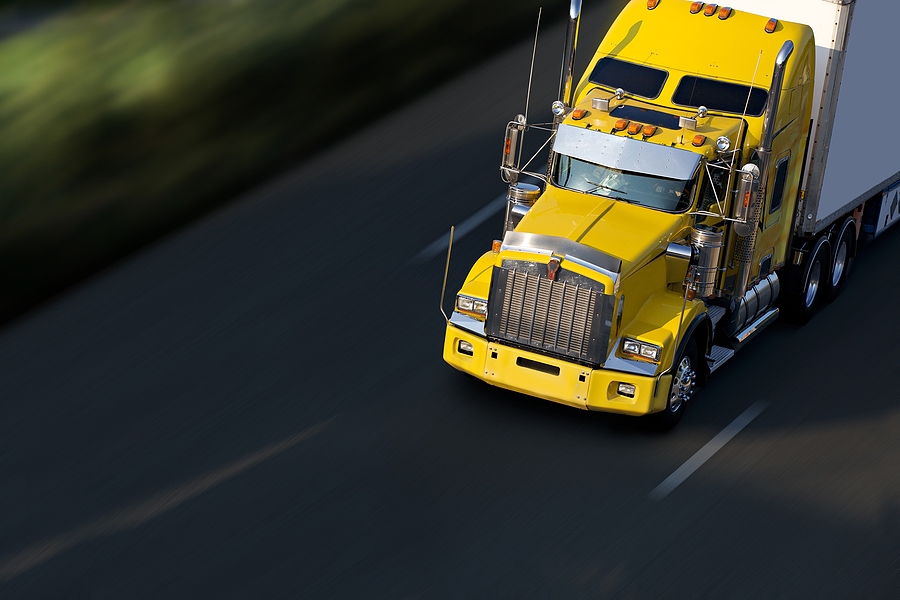Summary
- A trucking company’s responsibility to maintain the safety of their trucks on the road is a very important aspect of their business they must comply with.
- Trucking companies must follow strict state and federal regulations governing truck maintenance and safety.
- Companies must regularly inspect their trucks and take any vehicles with mechanical issues out of service.
- Federal law also mandates that companies follow regulations concerning cargo loading.
- Trucking companies must hire qualified drivers and take steps to ensure those drivers adhere to federal and state hours of service rules.
- A personal injury lawyer can help you take action if a trucking company fails to follow regulations and you suffer an injury due to its negligence.

Many people assume the truck driver is to blame when a truck accident occurs. That’s true in many cases since commercial vehicle drivers often drive fatigued, are distracted due to smartphone use, or are impaired by drug or alcohol use. Also, truckers will often drive much too fast to meet deadlines.
However, trucking companies can also share or get the full liability outright. They’re also responsible for maintaining their trucks so those vehicles are safe on our state’s roads and highways. This moral obligation can have a profound impact on public safety.
The following is a look at some trucking company responsibilities to keep their vehicles safe. If you’re hurt in a truck accident, the attorneys with The Eberst Law Firm will hold those who caused the accident accountable. We’ll work to make them pay dearly for the suffering they’ve forced you to endure. Contact us online or call 772-225-5566 for a free consultation.
FMCSA Requirements
Florida had over 9,000 commercial vehicle accidents in 2022. Our state ranked No. 3 in the nation in this troubling statistic, even though strict regulations are in place to keep those accidents from happening.
Like many other states, Florida follows Federal Motor Carrier Safety Administration (FMCSA) safety standards. These regulations encompass a broad spectrum of safety measures, including regular inspections, maintenance checks, and the prompt repair of defects that could compromise a truck’s safe operation.
Here’s a brief look at a few FMCSA requirements:
- Companies must properly lubricate all of their vehicles.
- Trucking companies must also ensure that all parts and accessories are always in safe operating condition. These include axles, frames, wheels and rims, steering systems, etc.
- Companies must declare any vehicles likely to cause a breakdown or accident due to mechanical conditions out of service.
Routine Inspections
Florida and the FMCSA mandate routine inspections, which should be fundamental to a trucking company’s safety commitment. These inspections include systematic checks of components such as brakes, tires, lights, and steering systems, ensuring they meet the required safety standards.
You can’t overstate the significance of regular maintenance and timely repairs based on these inspections. They’re critical in preventing mechanical failures that could cause truck accidents on the road.
Keeping Records
In addition to routine inspections, Florida law mandates that trucking companies maintain accurate and up-to-date records of their maintenance activities. These records must be readily available for inspection by authorities to ensure compliance with state and federal regulations.
Cargo Loading Requirements
The responsibility extends beyond routine maintenance to encompass the proper loading and securing of cargo. Overloaded or improperly loaded trucks can significantly compromise a vehicle’s stability and maneuverability, escalating the risk of accidents. Trucking companies must adhere to weight limits and loading regulations to mitigate these risks and ensure the safe transportation of goods.
Florida law establishes specific limits for commercial trucks. These include:
- Width limitations – Trucks traveling in Florida can’t be more than 102 inches (8 feet, 5 inches) wide. Trucks can’t travel on public roads that aren’t at least 12 feet wide.
- Height limitations – Commercial trucks in Florida must not be more than 13 feet, 6 inches high. Automotive transport vehicles can’t be more than 14 feet high.
- Length limitations – Trucking companies can’t attach more than two trailers to a truck tractor. The combination can’t exceed 65 feet in length.
The state and FMCSA also establish regulations for securing cargo. When cargo falls or shifts during transit, that can lead to potentially devastating rollover accidents. Trucking companies must use proper methods of cargo securement. These methods include not only specific procedures for loading but also other requirements regarding tie-downs.
Companies will often outsource cargo loading to third-party businesses. If that business fails to follow regulations and an accident occurs due to negligence, you could take action against that business and the trucking company.
Driver Training
Far too many accidents occur to unqualified truck drivers behind the wheel of commercial vehicles. Trucking companies often cut corners regarding the hiring and training of drivers due to driver shortages that continue to plague the industry.
Trucking companies must employ qualified and adequately trained drivers with the necessary skills and knowledge to operate large commercial vehicles safely. Ensuring drivers are well-versed in state and federal regulations, road safety practices, and defensive driving techniques is crucial in preventing accidents and promoting safe trucking practices.
Hours of Service
A trucking company’s commitment to safety extends to the monitoring and enforcing hours-of-service regulations for their drivers. Driver fatigue is a significant contributor to accidents involving commercial trucks. Companies must adhere to federal hours of service rules to help reduce the risk of exhausted drivers causing accidents.
After an Accident
In the unfortunate event of an accident, trucking companies must fully cooperate with investigations. Trucking companies must provide necessary documentation, such as driver logs, maintenance records, and any other relevant information.
Cooperation with authorities in the aftermath of an accident isn’t only a legal requirement but also a demonstration of a company’s commitment to transparency and accountability. Trucking companies can face significant penalties if they fail to provide all information required by law.
Contact The Eberst Law Firm if You’re Hurt in a Truck Accident
The responsibility to keep trucks safe isn’t just a legal mandate. It’s an ethical obligation that extends to promoting a culture of safety. When trucking companies fail to prioritize the well-being of both employees and the public, they must pay.
At The Eberst Law Firm, we have a long track record of helping clients find success with their truck accident claims. Our attorneys will do all they can to help you obtain maximum compensation if a trucking company’s failure to keep their vehicles safe resulted in your injury. We’ll investigate to determine what happened and then pursue justice on your behalf.
If you would like to schedule a free evaluation of your case, please give us a call at 772-225-5566 or use our online contact form.
